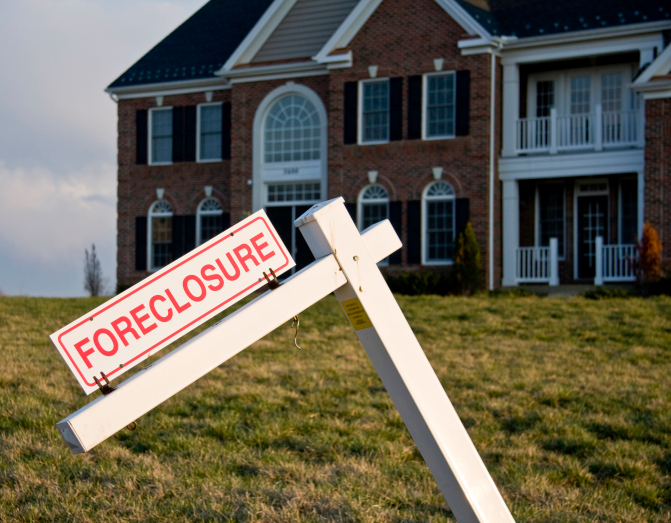Foreclosures have nose dived. However, the states hardest hit by the real estate disaster remain in deep trouble — another reminder that all housing problems are local and need to be solved at the local level.
Realtytrac reports that foreclosure starts declined 28% year-over-year to a 71-month low. In detail, it released its U.S. Foreclosure Market Report for November 2012:
… which shows foreclosure filings — default notices, scheduled auctions and bank repossessions — were reported on 180,817 U.S. properties in November, a decrease of 3 percent from October and down 19 percent from November 2011 — marking the 26th consecutive month with an annual decrease in foreclosure activity. The report also shows one in every 728 U.S. housing units with a foreclosure filing during the month.
The country has moved beyond the worst of the real estate trouble, which in many parts of the nation has lasted for well over six years.
But the improvement is hardly uniform. Florida, Nevada and Illinois registered the highest state foreclosure rates. Nevada and California were near the top of the list as well. In detail:
The Florida foreclosure rate ranked highest among the states for the third month in a row. One in every 304 Florida housing units had a foreclosure filing in November — more than twice the national average. A total of 29,612 Florida properties had a foreclosure filing in November, up 3 percent from the previous month and up 20 percent from November 2011.Despite a 54 percent year-over-year decrease in foreclosure activity, Nevada posted the nation’s second highest state foreclosure rate for the second month in a row in November. One in every 390 Nevada housing units had a foreclosure filing during the month.
And:
Florida cities accounted for seven of the top 10 foreclosure rates among metropolitan statistical areas with a population of 200,000 or more. The Florida metro of Palm Bay-Melbourne-Titusville led the way, with one in every 158 housing units with a foreclosure filing in November — more than four times the national average.
Other Florida cities with top 10 metro foreclosure rates were Ocala at No. 2 (one in 210 housing units with a foreclosure filing); Jacksonville at No. 4 (one in 253 housing units); Miami-Fort Lauderdale-Pompano Beach at No. 5 (one in 260 housing units); Sarasota-Bradenton-Venice at No. 8 (one in 277 housing units); Port St. Lucie at No. 9 (one in 278 housing units); and Gainesville at No. 10 (one in 283 housing units).
Too many homes cannot be sold, or have been abandoned, to clear inventory enough to match the level of potential buyers.
The crisis may have passed in states like Connecticut and Washington, which means a positive correction to the housing problem already has taken a historically natural course. Without some form of aid to homeowners in the hardest hit states, a rebound will take years. And if there is another recession, perhaps it will take longer. Absent specific aid programs, the trouble in places like Florida will not get any better.
Douglas A. McIntyre
Thank you for reading! Have some feedback for us?
Contact the 24/7 Wall St. editorial team.


